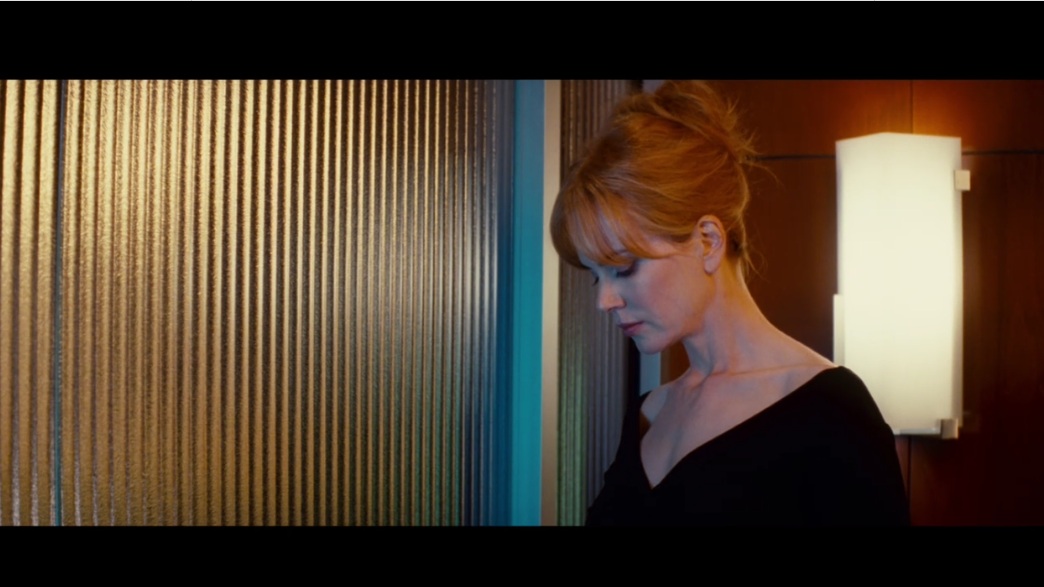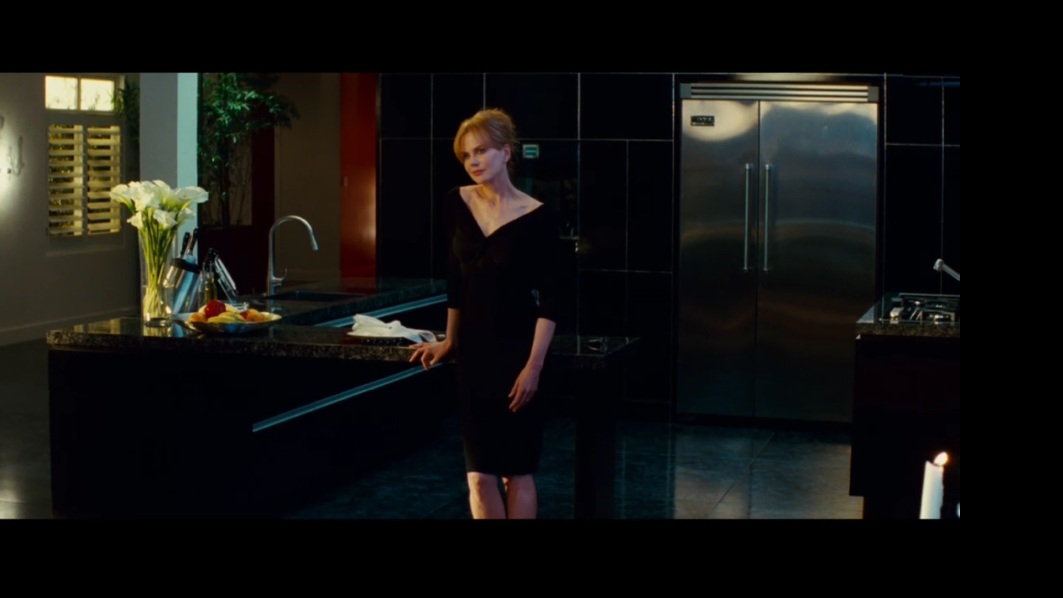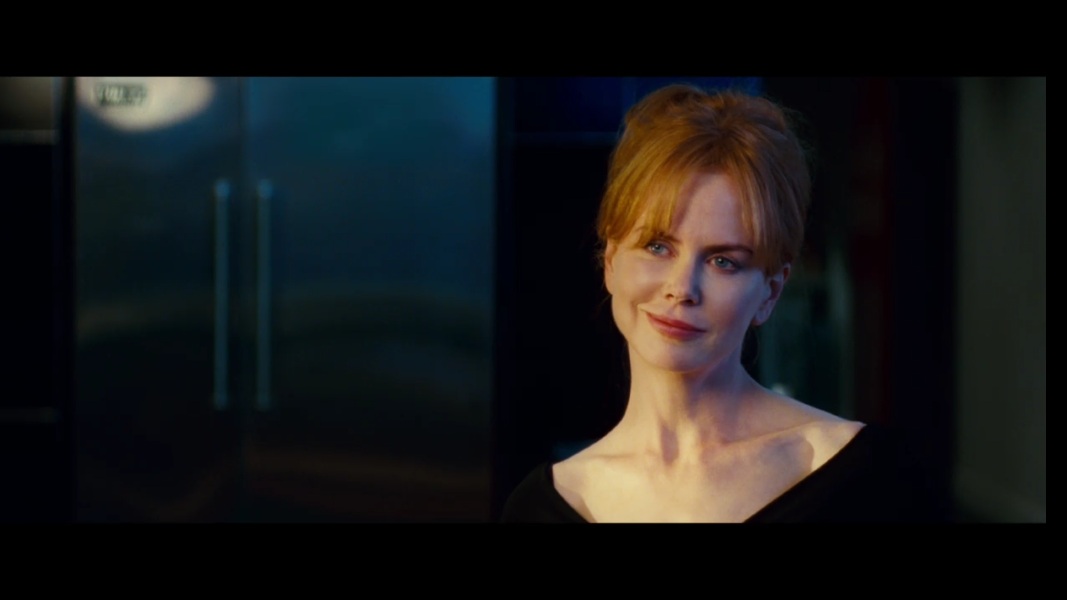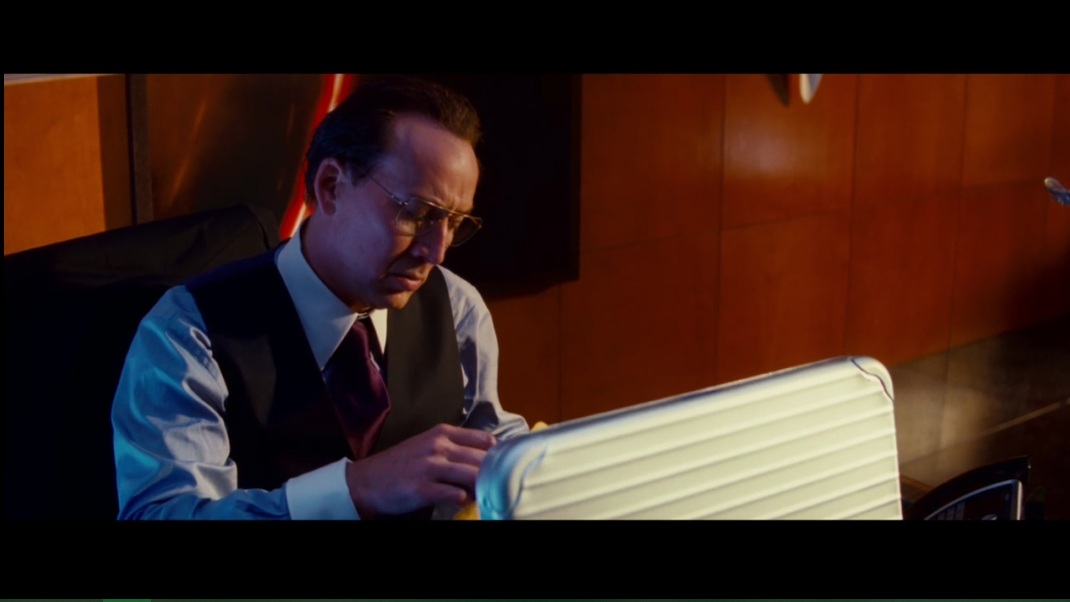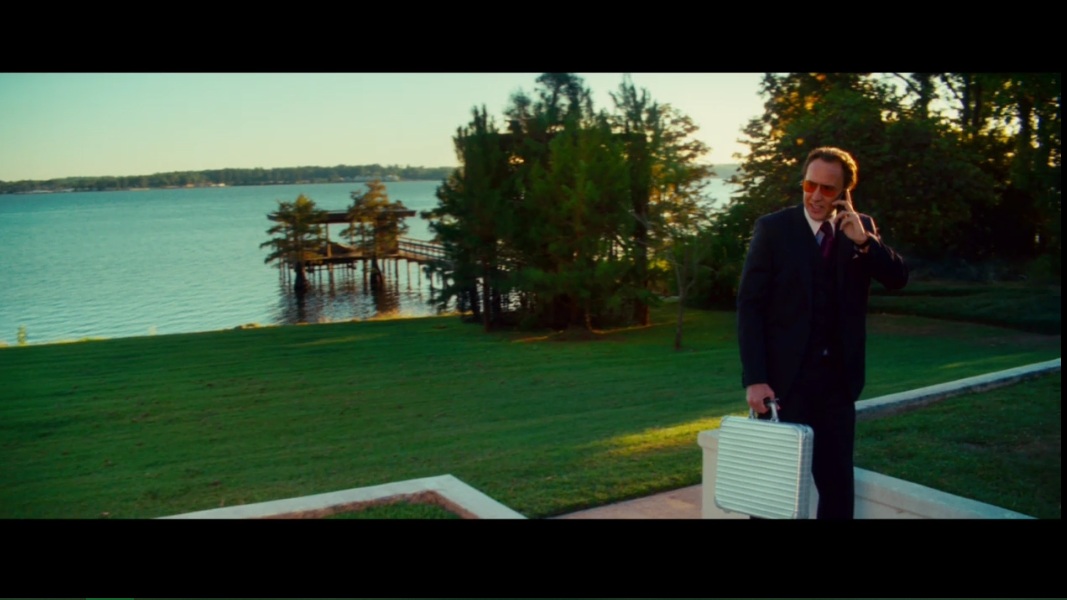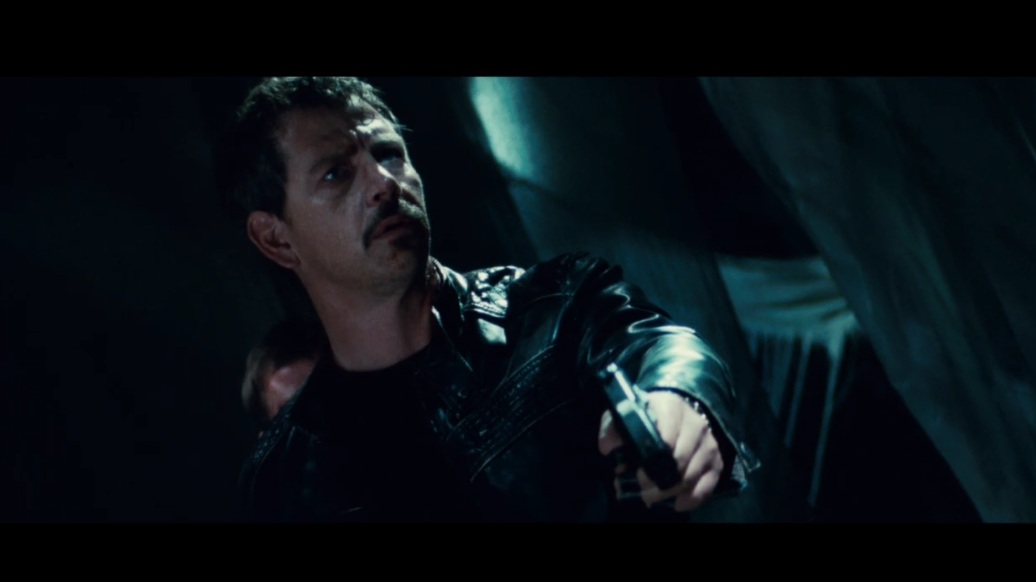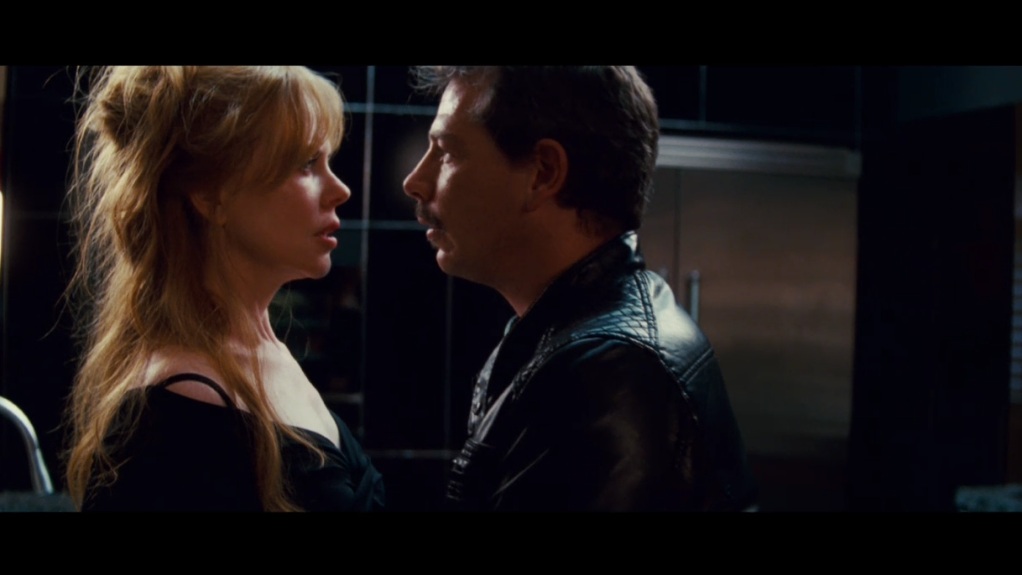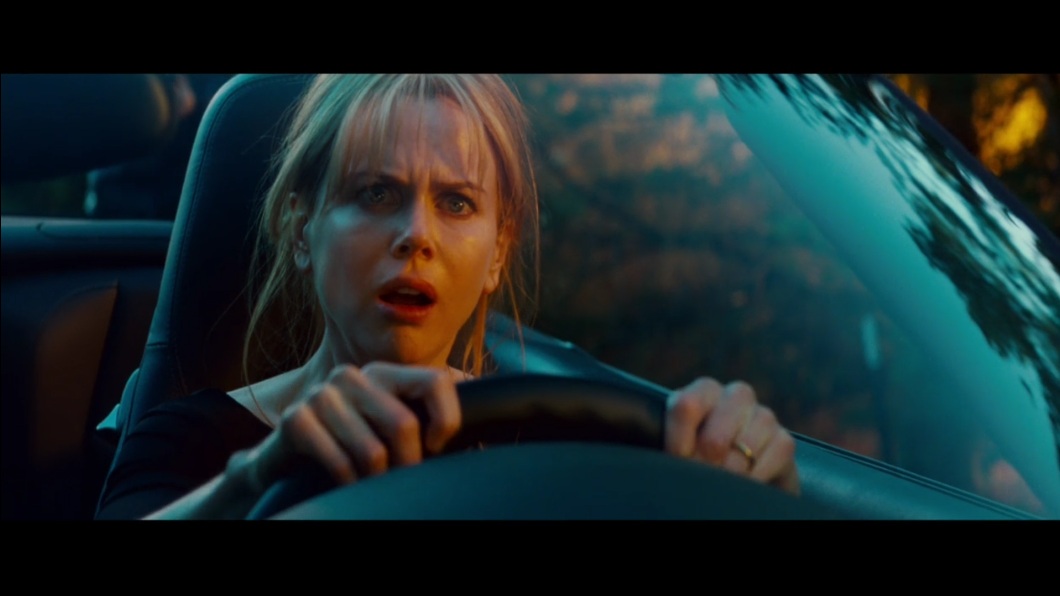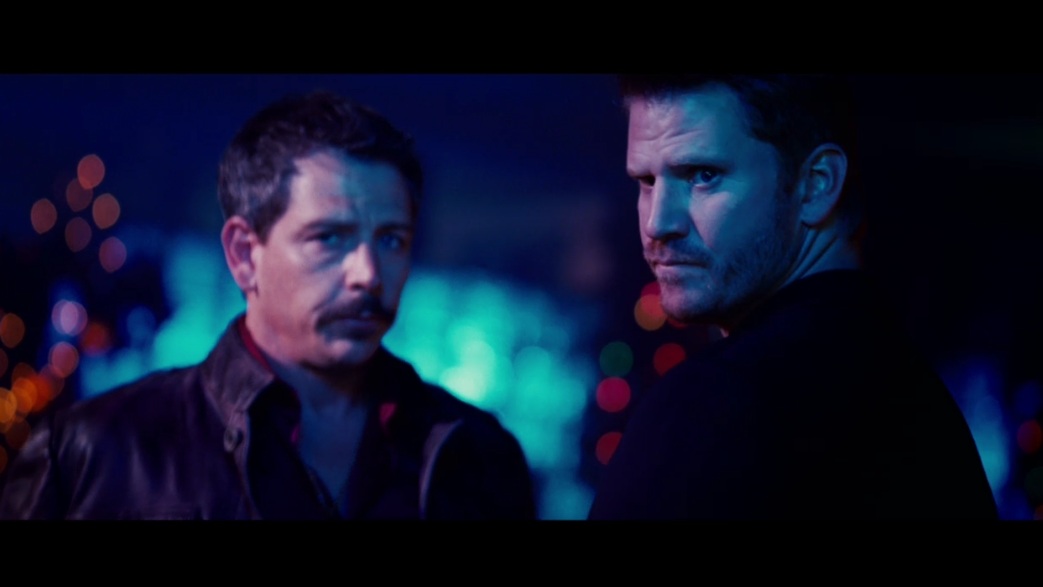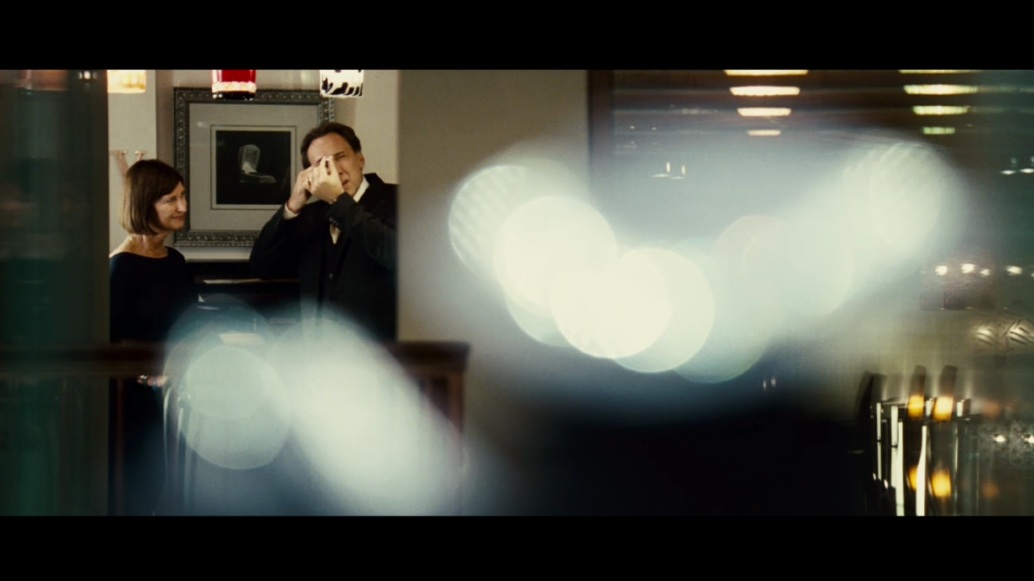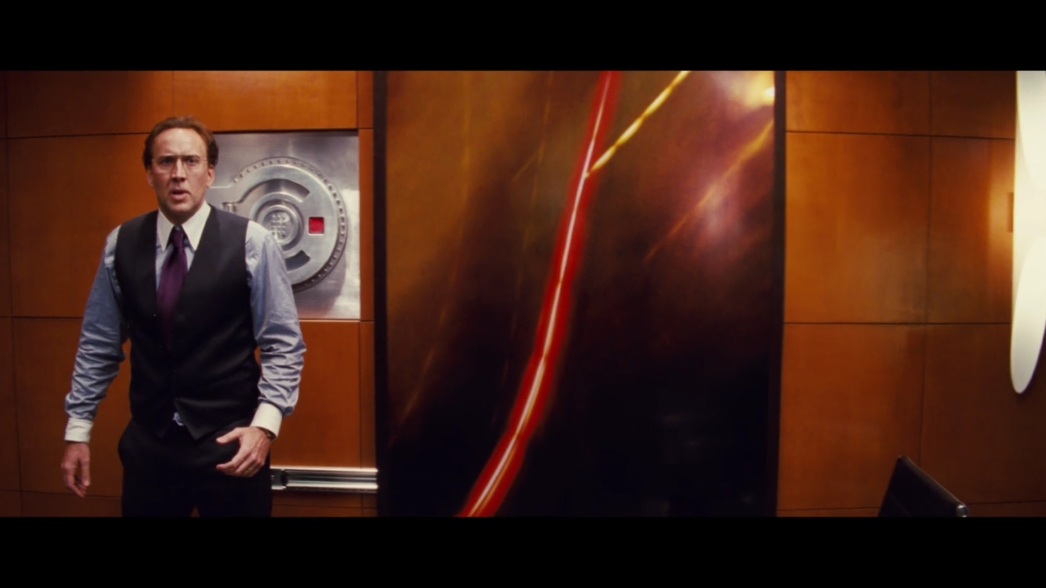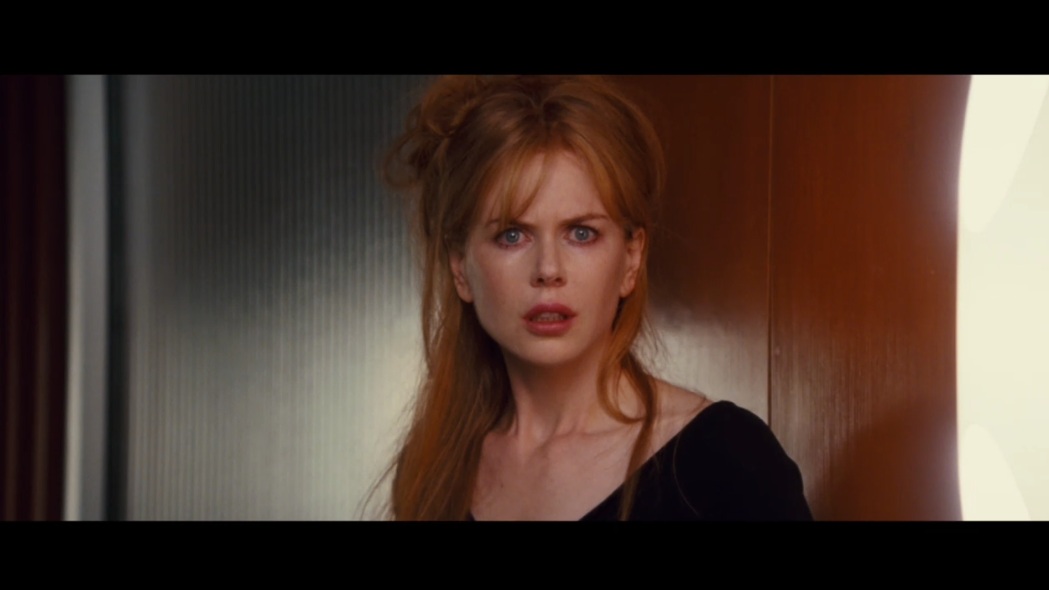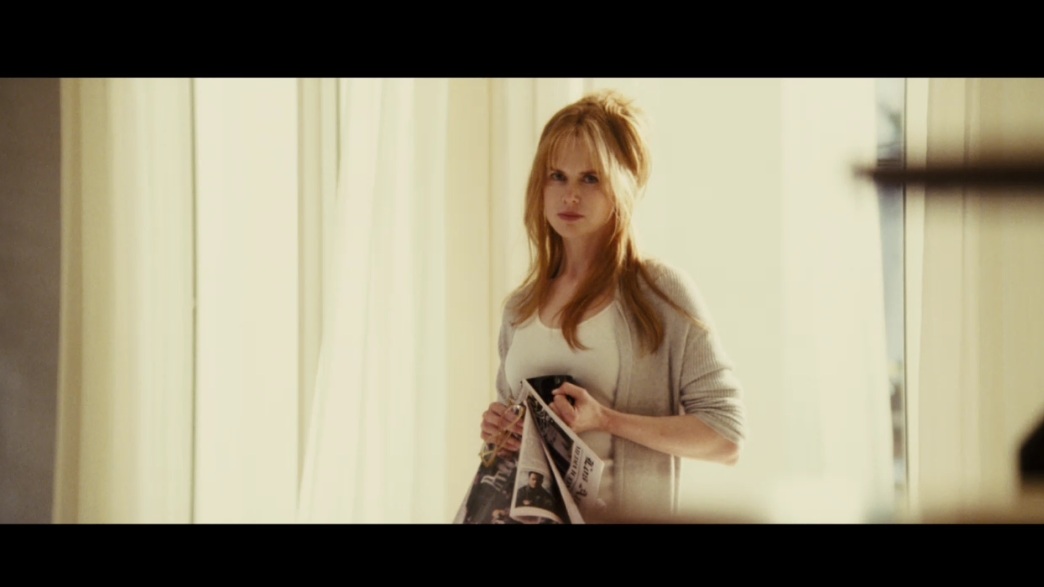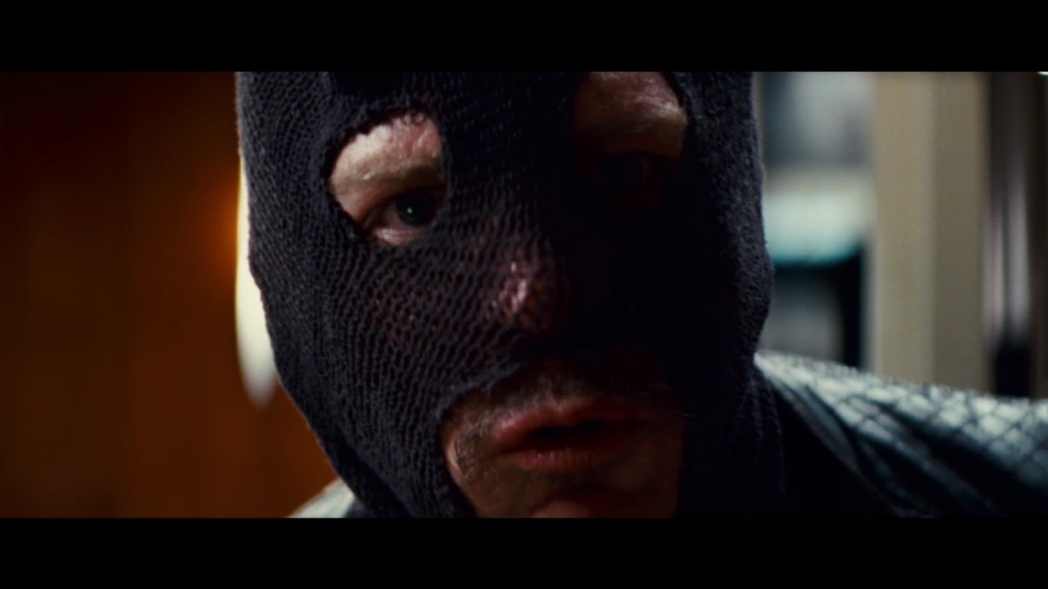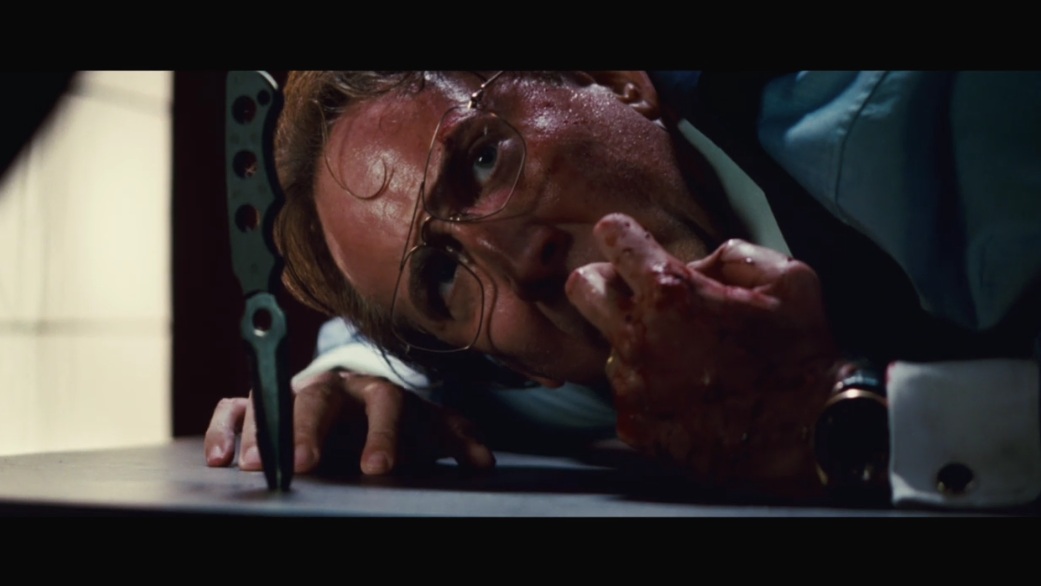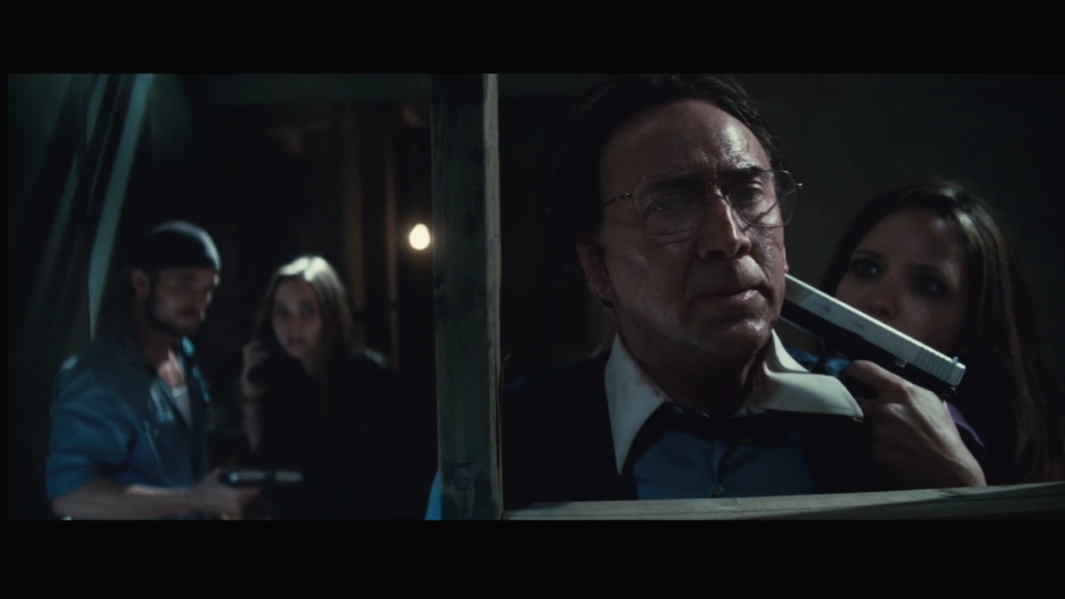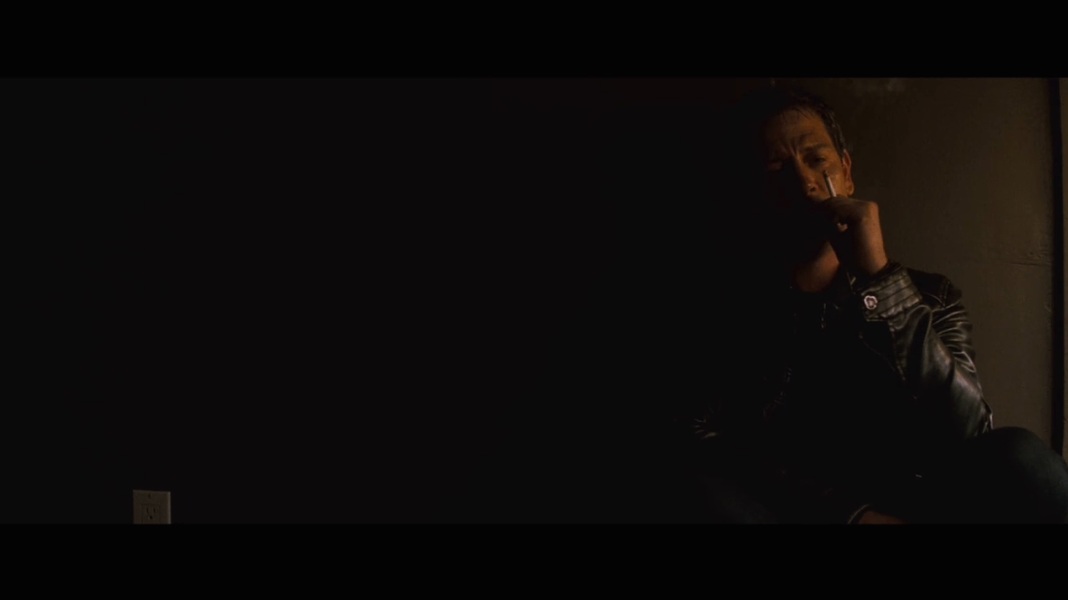Trespass (2011)
written by: Karl Gajdusek
starring: Nicolas Cage, Nicole Kidman, Ben Mendelsohn, Dash Mihok, and Cam Gigandet (who dat!)
A few movies ago I thought to myself, "when I say nice things about these movies, is it real or is it that I've convinced myself Joel is good and so his movies must have something good in them?" Not quite stockholm syndrome, but some variant where I must believe there's something of worth in these movies because I've committed all this time and energy to watching them and thinking about them and so on and so on. In the same way that I maniacally talked myself into really liking 8MM, had I done that with an entire oeuvre?
Coming into Trespass, which has garnered a mere 10% on Rotten Tomatoes, the final film in my year long Schumacher project, I was worried that the last venture wouldn't be good. Or would be dull, or ugly. I didn't want the last taste of Schumacher to be an uninteresting one. Would this be another Bad Company? Or something pleasant to finish up with? A light sorbet at the end of a varied meal? A pleasant surprise like Blood Creek? That's what I was hoping for-- not a masterpiece, for I don't expect a masterpiece, but I was hoping for something fun, light, with a bit of style.
And well, Trespass more or less was that. It felt good to watch. It's a decent culmination-- it never reaches the peaks of Schu's greatest hits, but there is still flavor there. There is still the touch. As a career end for now (you never know if he might make one more), it feels about right. It's a natural step in a long progression of movies. Here is a picture starring movie stars both established and up-and-coming, about a family figuring out how to love each other, with a genre stylistic element that makes it interesting to watch even when the plot falls a little thin.
And plot-wise, Trespass isn't much of a movie really-- Nicolas Cage plays a blustery big-wig diamond dealer married to lovely Nicole Kidman. Their marriage is a little rocky and their teenage daughter is a little rebellious. And then their house gets invaded. Led by Ben Mendelsohn (in one of his first American leading film roles, so that's cool), the crew who breaks into their home demanding diamonds and money turns out to be more complicated than they first seem. As the movie progresses, every character reveals themselves to have more going on that at first glance, more backstory and complication that initially thought. There are little twists and turns, red-herrings and misdirections throughout, continually diverting the course of where you think the movie is going. There’s a twist or change in perspective every five minutes or so— did Nicole sleep with the young criminal brother or not? Did they flirt or did he creep? Does Cage have diamonds or does he not? Not all of these are successful, but they add some mystery to the otherwise pretty basic plot. The best version of it that comes is when, early in the movie, Cage admits that there’s no cash, that he “put it all into the house.” We read this to mean he’s put it into the real estate and the building— there’s still construction going on on the house, in fact. Only much later, during a throw-down fight in the construction area, do we realize that Cage literally put the money in the house. The walls are packed with cash, There’s-Always-Money-In-The-Banana-Stand-style. That kind of twisty reveal based half on wordplay totally worked for me, and I almost burst out laughing for satisfied joy. I wish there had been more moments like that throughout the movie— it’s nice to be tricked and surprised by a movie, and to feel the giddy excitement of a truly exciting reveal. Ah, for a few more of those.
As a home invasion thriller, essentially, the movie works. It’s tense, harsh, occasionally brutal. You’re never terribly worried about the fate of the family, but eventually I found myself concerned about the fate of the invaders as well. My sympathies careened back and forth from side to side moment to moment, and that’s something pretty fun. The movie as a whole is carried (if at all) on the style of it’s presentation and the innate charisma of it’s stars. Without the stars, the wandering sympathy wouldn’t land at all. Nicolas Cage, always a little demented, here goes slightly more restrained, until absolutely breaking loose. He wears giant glasses and weeps with aplomb. I applaud his commitment, and it’s nice to see him let out his more vulnerable side. Nicole Kidman, always grand, can’t quite keep her accent but screams and whimpers and manipulates and fights back like the best of them. What she’s doing in this movie I’m not sure, because surely she’s too big a star for a bit of fluff genre fare like this, but the role does show her immense talent and gives her lots of things to do and try. It’s not a remarkable performance, because the material isn’t quite up to her caliber, but she does her best with it and makes a good show for herself. And then, there’s Ben Mendelsohn, our best sweaty weasel actor, doing what he does best. He sweats, he weasels, he has a mustache. His lisp, one of his more charming and defining characteristics, is barely there until everything falls apart, at which point he slurs and spits and sneers. Gotta love that Mendelsohn.
But what it really comes down to for me is this: There's a part in the movie where Mendelsohn tells Cage that it's silly to put a painting over a wall safe, since it doesn't hide the fact that there's a safe. "It's aesthetic," is Cage's defense. It's not about hiding the safe, it's about not making guests stare at a safe. "It's aesthetic" is pretty much everything that Trespass is doing.
Why does Nicole change into a tight black dress right before things turn dangerous? Aesthetics. Story-wise I suppose it's because she's trying to gussy up for an evening to remind her husband that he loves her and why he does, but it's also mainly because Nicole looks beautiful in black. The contrast of her very white skin and bright eyes and red-blonde hair against a very matte black dress is stunning. She's just strikingly beautiful. Why put her in that dress? Because it looks great.
Why does Mendelsohn keep taking off his mask and showing off his face? Aesthetics. Why is the house designed like that? Aesthetics.
Now, I have absolutely no qualms with this. At all. I appreciate style over substance if the style is really good. Here, the style is pretty darn good. Working with the same cinematographer as on Falling Down, Schumacher creates a closed movie that feels expansive. Tensions ramps up visually in accordance to the heightening of the plot. Most of the movie takes place in the office of the house, or the surrounding rooms, but the room feels large, you get the sense of the rest of the house and it's layout. Then, beyond that, the house continues to reveal new rooms and hallways for set pieces to take place in. And why not! Light the house on fire at the end so you can watch people glow inthe firelight late at night?? Why ever not! It's aesthetics, baby.
The lighting is consistently beautiful— often unnatural in it’s warm foregrounds and cool backgrounds, with the saturation pumped way up. Scenes have multiple sources of light, all in different colors. Every person is lit to pop against dark backgrounds. Trespass is a pretty film. It looks really good— very crisp and colorful, unnaturally sharp, which adds to the On Edge feeling of the movie. It’s a tightly wound story, and the filmmaking is equally tight. There are fast, swish-slide scene transitions, throwing you around scenes, utterly out of control as the story veers left and right around you. I’ve said before that Schumacher is an excellent craftsman, and I think that might be what’s at play here. He’s good at making good looking movies, and so despite the general blah feeling to the story and script of Trespass, it still looks good and functions well.
There are a few moments of particular Schumacherian flair here, however— a few washed out, dreamy flashback sequences, a few scenes washed entirely in blue or purple or red, a few moments delivered straight to camera, a few very cool shot compositions. And, as things get more hectic in the story, the filmmaking gets more hectic to match. What was previously relatively stately and static becomes shakey and frenetic. Dutch angles appear at steeper and steeper rakes, shot compositions become more complicated.
Maybe I have come to learn mostly that Joel is a stunning visual stylist, and his thematic interests don't always extend into the scripts he gets to work with. It doesn't mean that he doesn't clearly have particular interests which make themselves clear in every movie, this one included. Where many of his movies have an interest in the found family, Trespass is all about blood families. But blood or not, it is still a family you have to find. It takes the better part of the movie for Cage, Kidman and their daughter to find each other and come together as a family unit and a team. Meanwhile, Mendelsohn and his brother are crumbling apart. Their family is slipping through their fingers as the family of our heroes gets closer and closer together. It’s that family closeness that allows them to survive the movie and come out more-or-less on top. Their love and commitment to each other is what saves the day for them. This is classic Schumacher stuff, in my opinion. The movie itself isn’t a wonder of screenwriting, but you can see what he found to latch onto in this one. That he’s working with good actors helps, and these actors are able to put more into this movie than has much right being there. It’s clear why Mendelsohn has climbed to the heights he’s at now. It’s almost confusing how good he is in this movie— almost too sympathetic, too gentle, for the character he’s playing, who maybe should be a more simple villain. But that’s the Schumacher touch for ya. He loves his actors, loves his characters, and it bleeds through into the movie in ways that are occasionally strange, but at least are never heartless or empty. There’s feeling here, and that’s something.
So the visuals are lovely, the acting is solid, and the story is less well put together, but it's all okay. There are some movies where the messiness of a plot hole or lack of motivation is distracting to the point of ruin. Here, those issues didn't detract terribly much. It’s a fine movie, an acceptable movie. Neither a trainwreck nor a masterpiece, Trespass is a perfectly functional thriller. I had fun watching it, and that’s enough for me. I know that doesn’t sound like high praise, and I admit that it’s not. But some people would have you believe that Joel Schumacher never made a good movie, or even a functional movie, after his Batmen. I’m here to tell you that’s factually untrue. They’re not all winners, I grant, and Trespass is not exactly high art. But it’s not a waste of your life, and it’s only 90 minutes long.
In the end, I do admit I find myself a little disappointed that this is the end of my year long journey with Mr. Schumacher. I’ve had a good time, and I would have loved to have gone out with a real banger. But I am not bereft of hope, and if he ever makes another movie I’ll be there with bells on to see it. Trespass is not so bad as to break the affection I have for Schumacher’s body of work— it’s not even the worst movie in his filmography, not by a long shot. I might be delusional in a lot of ways, but not about the overall quality of Schumacher’s movies. Trespass may not have blown my socks off, but what makes me feel good about ending my journey with it is the genuine hope it gives me for moving forward. It proves that the talent is still there, the particular touch has not been diminished or beaten down. The techniques are a little different, the mood has changed, but what’s good is good, and what’s Schu is Schu. What’s aesthetics is aesthetics, and as long as the aesthetics are pleasing, can you really complain?
Overall: ★ ★ ★
Schumacherness: ★ ★ ★ ★

